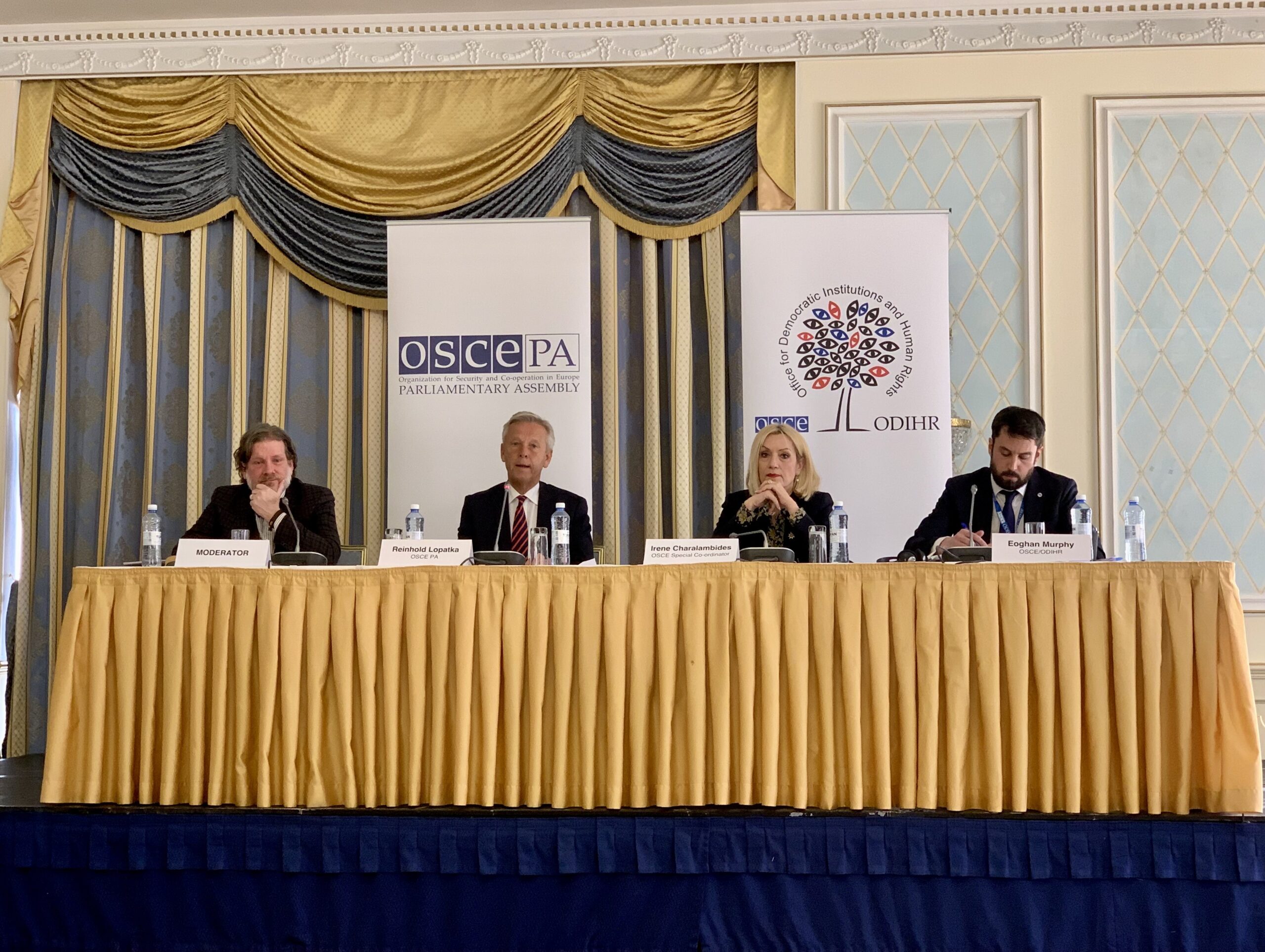ASTANA – Kazakhstan’s March 19 parliamentary election offered increased choice for voters, though some limits on the exercise of fundamental freedoms and participation remain, said international observers from the Organization for Security and Cooperation in Europe (OSCE) Office for Democratic Institutions and Human Rights (ODIHR) and OSCE Parliamentary Assembly during the presentation of their preliminary findings on March 20 in Astana.

OSCE mission presented their preliminary report on Kazakhstan’s parliamentary election on March 20 in Astana. Photo credit: The Astana Times.
According to their statement, the recent legal amendments in the Constitution addressed several previous ODIHR recommendations, including ensuring that all seats in the Mazhilis, the lower chamber of the Kazakh Parliament, are directly elected, allowing self-nominated candidates to contest elections, easing requirements for party registration, and reducing the electoral threshold for political parties to enter the chamber from seven to five percent.
Recommendations relating to fundamental freedoms of peaceful assembly, expression, and media, however, are yet to be implemented, they said.
Further changes to the legal framework are needed to provide a sufficient basis for conducting democratic elections, reads the statement.
“Democracy is a process that requires constant attention and dedication. We have noted some welcome improvements, including related to election laws, but Kazakhstan will only achieve the stated political goal of democratic development if far-reaching reforms continue,” said Irene Charalambides, OSCE special coordinator and leader of the short-term observers.
“In particular, greater attention to protecting everyone’s fundamental freedoms is needed. Most notably, the restrictive media space and limited campaign coverage did not match candidates’ efforts to engage in a more dynamic contest,” Charalambides, a member of the Cypriot parliament and the Vice-President of the OSCE Parliamentary Assembly, added.
The mission assessed the overall campaign of candidates as active and free. Party platforms and messages addressed a wide range of social and economic issues but were generally supportive of the president’s reform agenda.
The campaign was more dynamic and generated higher engagement in the majoritarian contests in the main cities, as well as online, with some self-nominated candidates offering alternative programs.
Three televised debates, one organized by the Central Election Commission (CEC) and two paid by the political parties, served as a platform for parties to present their views. Most TV channels provided equitable but only superficial coverage of the campaign activities of political parties in one joint news item, the observers noted.
This, combined with the limited news, investigative and analytical coverage, did not facilitate voters’ ability to make an informed choice, according to the observers.
Still, the recent changes, including the possibility for self-nominated candidates to stand in single-mandate districts, as well as revised registration requirements for political parties, increased the range of political options.
“The increased competition, particularly with self-nominated candidates, is a significant development,” said Reinhold Lopatka, leader of the delegation from the OSCE Parliamentary Assembly. “However, legal and practical hurdles continue to detract from a fully open race among equals. In the future, the publication of results for each polling station will be important for improved transparency and public confidence.”
“The electoral preparations were administered efficiently by the CEC and the voting process was smooth overall,” added Eoghan Murphy, head of the election observation mission from the OSCE/ODIHR.
The CEC held regular live-streamed sessions and published its decisions promptly. It conducted an extensive and inclusive voter information campaign in Kazakh and Russian. Several welcome initiatives to facilitate access for persons with disabilities to the electoral process were implemented, according to the statement.
Observers also highlighted the improvements in the legal framework and judicial remedies that safeguarded the candidates’ rights. They proved effective in several cases observed by the mission on candidate nomination and registration, restoring eligible candidates.
“The law provides for resolving disputes within reasonable deadlines. Complaints and appeals may be submitted to commissions and courts via an electronic system, while court sessions can be attended online, facilitating access,” reads the report.
According to the mission, the accreditation of observers was inclusive, with the recently amended Election Law that introduced for the first time a formal accreditation process for citizen observers, requiring a domestic organization to have election observation among its statutory activities.
According to the Central Election Commission, six out of the seven parties that participated in the election received enough votes to pass the five percent threshold to gain seats in the Mazhilis. Amanat party won a majority with 53.9 percent of the vote, Auyl People’s Patriotic Democratic Party received 10.9 percent, Respublica party – 8.59 percent, Aq Jol Democratic Party – 8.41 percent, People’s Party of Kazakhstan – 6.8 percent, and National Social Democratic Party – 5.2 percent.
In the 29 single-mandate districts, 22 seats were taken by the candidates fielded by Amanat, while seven were self-nominated.
